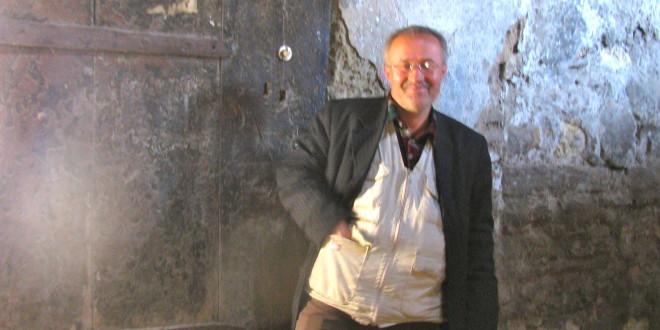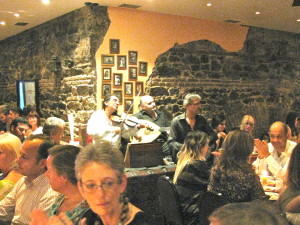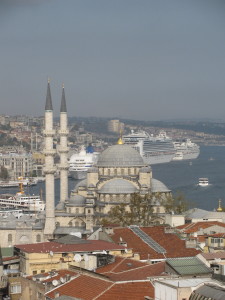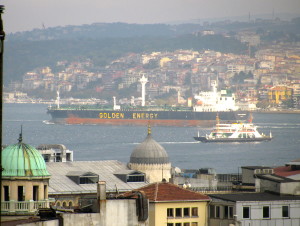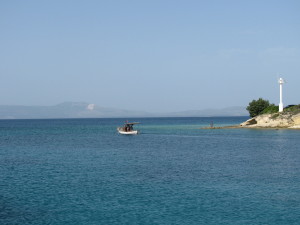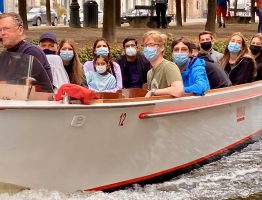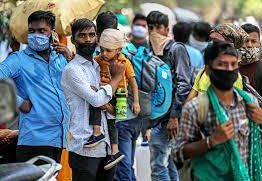In the final months of our Turkish posting, I welcomed the arrival of a new attribute: competence. Competence, which I’d been so lacking only two short years before, which I had longed for and studied for and pressed people to try and achieve. Now it seemed within my grasp. A great deal of pride could be attached to figuring out a foreign city. And that pride was heightened in vast, complex Istanbul.
My newfound know-how brought back memories. In my last months in Yemen, I’d known Sana’a’s dusty, unpaved roads so well that my boss asked me to drive a new colleague around to look at rental units. In Costa Rica, shortly before we left, I had driven Angela all over San José, on roads that had previously confused me, to make sure she didn’t miss any end-of-the-school-year parties.
In Istanbul, my savvy didn’t manifest itself in expert driving; I had only used our car for Saturday and Sunday morning grocery runs. But I had successfully used buses, trams, boats, and the metro. I particularly loved riding Turkish buses. Unlike in the U.S., where buses are often ridden by those at the margins of society, in Turkey, it was a solid middle class that rode, quiet and contemplative.
Just like in Yemen and Costa Rica, as our tour in Turkey began to end, I was increasingly out and about, visiting people and places, trying to squeeze everything I could out of our remaining time.
One Saturday morning, Sankar away on a trip, I got up and bid farewell to two houseguests. I then changed the sheets and drove to the grocery store to stock up for two new guests who were arriving the next day.
In the afternoon, I set off to meet Joan, the adult daughter of a friend from home. She and her husband had just arrived in Istanbul for a visit, and my friend had asked me to give them some travel tips. I walked down to the Bosphorus, took a twenty-minute bus ride to Kabataş, and then caught the tram to Sultanahmet. On the tram I met a British woman who was traveling in Turkey by herself. We chatted, got off together, and walked through Sultanahmet. I then picked Joan and her husband up at their hotel, and we walked to a nearby restaurant with an enchanting view of the Hagia Sophia.
We talked about the sites they planned to visit and made a date to tour the Grand Bazaar later in the week, when my incoming guests would be out of town.
After this, I headed, via tram and funicular, to Istiklal Avenue. Istanbul’s historic “Tunel” funicular lets ascending passengers off on a sloped surface, and as I got off, I felt dizzy, as if I was stepping off a boat. I walked a few blocks north on Istiklal to a meyhane, a traditional Turkish tavern, where the American Women of Istanbul group had reserved a table. Sitting down among friends, I nibbled some traditional mezzes—slices of white cheese and smoked eggplant dip.
The head of the consulate, Scott, and his wife, Jan, neighbors and fellow ARIT travelers, sat down across from me. At that point I realized I was too tired to make conversation. It was out of character, and even a social faux pas to sit without contributing, but all I could do was try and silently process the hectic day. Thankfully, Scott and Jan were also leaving early, and I got an official (driver plus security detail) ride home with them. The next morning, refreshed, I got up and welcomed new visitors.
My progress with Turkish had seemed to stall during the year I taught, because of a dearth of study time. But I had heard quite a bit of Turkish around me in the office, and that had apparently been positive. Now, when I went out with Linda, I was often able to follow her fluent words. A complete sentence or two of Turkish would come through to me as clear as a bell, and at the same time, I would have the brain space to say to myself, “hmm, she is using the first person plural here.” I was finally decoding the language, and it was every bit as thrilling as it had been back when I was 22 years old in Puerto Rico and hearing my first authentic words of Spanish.
Waverley and I and the remnants of the Monday Ladies (a couple of the Ladies had moved away) still met regularly. In the fall of 2012, thanks to an obscure couple of sentences in the Bazaar Quarter guidebook, we began visiting one of Istanbul’s major hans (ancient inns dedicated to particular craftsmen),The Büyük Valide Han. This, the largest han in Istanbul, dated back to the late 17th century, and had been used for textile weaving.
Over the next six months we would make many trips to this han. We would locate it in the dense tangle of buildings outside the Grand Bazaar. Then we’d enter its huge, iron-plated doors and climb darkened stairs to the second floor, which formed a balcony around a large courtyard. Lining the balcony were workshops and deserted storefronts. We would pass a place where glass lights sold in Grand Bazaar were “antiqued,” and glance into a small takeout restaurant that delivered kebab lunches to han workers. We’d pass rooms where we could hear men pounding on sheets of metal. Finally, we would locate a retired weaver mentioned in the book, named Mehdi.
Mehdi had a key to the roof, and we’d greet him and point our fingers upward inquisitively. He would nod and walk with us to unlock a dust-covered door at the end of the corridor. Then, after tipping him and climbing up uneven stone steps with the dirt of the ages ground into them, we’d find ourselves on a rooftop, sticky with pitch and scattered with small, protruding domes. An attic room off to one side was full of debris and a haunted-looking old loom with ghostly gray scraps of fabric still hanging off of it.
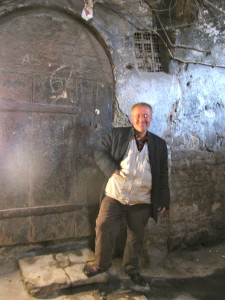
From the roof we could gaze out at the Golden Horn, the Bosphorus stretching off to the north, and the distant shores of Asia. Nearby were the Nurosmaniye Mosque, the New Mosque (completed in 1665) alongside the water, and the Beyazit Mosque. If we had timed our visit just right—and we knew to do this by checking the Internet for the day’s prayer schedule—we could be up on the roof in time for the prayer call. It was mesmerizing to hear the melodic words coming from all the mosques of Istanbul, echoing off the old buildings and the water. We felt like privileged, intrepid insiders (and also oddly proprietary, casting doubtful glances at the few other tourists doing exactly the same thing), and dubbed our experience “surround sound prayer call.”
Even during these days of pride and accomplishment, embarrassment still remained a possibility. Something as simple as laundry could reveal my shortcomings. It had started when my conscientious cleaning lady, Ayşe, decided to take down my lacy living room curtains and wash them. I hadn’t noticed that their white was gradually turning to gray.
When Ayşe left for the day, the drapes washed, dried, and back up on the windows, I noticed that my washing machine was now set to “B.” I had never messed with the settings after making the decision nearly two years earlier to set the knob on the picture of a tub full of wavy water. But now I stood staring at the knob as if I hadn’t seen it before. Hmmm, “B.”
Of course! Beyaz means white in Turkish. Ayşe had set the machine on whites!
I looked at the other letters and realized I might want to finally figure out what they meant. I didn’t have time to ponder them because I was heading off to meet Turkish teacher Ferda for class, so I wrote them down to ask her.
Ferda patiently explained. “R” was for renkli, colored. I knew that word. And “N?” That stood for narın yikama, delicate wash.
So what about the wavy water icon? I drew a picture of it for Ferda. “Ne demek?” What does that mean?
Ferda tried to explain using the word, durulamak. I didn’t know what that meant, and she didn’t know the English for it. But then she said sadece su, only water, and I finally got it. “Only water,” meaning Rinse Only.
For heaven’s sake.
For two years I had been washing all of our towels, sheets, and clothing on the rinse cycle. No wonder nothing ever seemed to get completely clean; I had thought well, ‘Turkish washing machine . . . maybe the quality isn’t so good. . .”
Turks place a great deal of emphasis on cleanliness—language books devote chapters to dialogues and vocabulary describing weekly housecleaning that includes removing draperies and rugs from the home; shopkeepers regularly scrub the sidewalks in front of their stores, making huge soap bubbles; and bus drivers wash their vehicles each morning. Although Ferda was too polite to say anything or even raise her eyebrows, I imagined she was inwardly shuddering, wondering why it had taken her student two years to get her laundry operations straight. And where, I wondered, had all the soap gone?!
Humbled again! Well, there was nothing for me to do but look down at the page of case endings we were supposed to be reviewing and change the subject.
Ferda was a great go-to person for language and for information about Turkish culture, but now Sankar and I had a new and unusually insightful friend. The company had recently hired Emre, a marketing manager who had lived in both Western Europe and, for over a decade, in the U.S. Emre was one of the only Turks we met who was able to step back from his own cultural perspective, giving credit where it was due and criticizing his own country when merited. Sankar and I hit it off immediately with Emre, and began to rely on him for insights into social and political trends in Turkey.
Non-religious, Emre nevertheless felt that Turks who had been marginalized by Atatürk’s secularization needed to be integrated politically and economically. We had found the religious-secular divide so absolute in Turkey that his sentiments astonished us.
With Emre, like other Turks, we initially felt compelled to launch into a paean to Turkey’s greatness. We complimented Turkish roads, praised the overall quality of public services, and raved about the delicious food and the warm, hospitable people. Emre listened and nodded, but then volunteered, “You won’t notice this unless you stay in Turkey for ten years, but actually, Turks are not all that nice to each other.”
Really? That was a surprise! I did realize, however, that Sankar and I tended to evaluate Turkey only in terms of our own treatment. Could these pleasant and welcoming folks actually be employing a kind of selective niceness? When I managed to turn the lens away from myself, I began to see that what Emre said was correct. Fellow teacher, Yasmin, a non-drinker, was considered secularly suspect by the teachers in power, her bids for promotion ignored. When Waverley had a first communion brunch for son Isaiah, a Turkish manager and his spouse stood stiffly, refusing to converse with the only other couple in the room, Taner, the family’s driver and his wife. And I recalled Ümit regularly dismissing my praise for Sankar’s secretary, Beyza, insisting she really was neither talented nor creative.
I hadn’t seen Beyza for quite awhile. The two of us had gone out for lunch a couple times—I found it both flattering and unusual that a secretary would show an interest in getting to know me—and she had come over for pizza once. When Istanbul had a slight earthquake tremor one evening and Sankar was out of the country, Beyza had immediately phoned to see if I was okay. In early 2012, she got married and we attended her wedding reception. She looked stunning in her white strapless gown—slim and elegant, her almond eyes sparkling. Her husband, Marco, was from Italy, and his fellow countrymen entertained us with stylish, jazzy dancing.
On Angela and Greg’s first visit to Turkey, Beyza and Marco had invited the two of them for drinks at a fashionable spot on the Asia side. I was floored by this thoughtfulness; I would have shied away from extending an invitation like this out of fear of awkwardness. But we rarely observed reticence in Turks. And of course Beyza had taken care of all of our newcomer needs as well as helping me get my job.
After my first six months I hadn’t needed Beyza’s help much any more. I was busy with work and sightseeing. And Sankar was often away, traveling in other countries. When he was home, we were increasingly busy with other activities and friends. In fact, Burcu had recently commented to us that we were “living fast.” Normally a homebody, I was traveling outside Istanbul at least twice a month, for ARIT trips or sightseeing tours of our own in addition to spending four to six weeks each year in Minnesota. And it wasn’t just the travel; it was planning, packing, organizing, and then nurturing the new friendships these trips sparked.
Beyza was now expecting a baby, and seemed to be experiencing a lot of illness. For the last few months, whenever Sankar mentioned her name, it was in the context of “Beyza is out sick today, so she can’t help me with [whatever].” Sankar would generally follow that with a sympathetic comment like, “She has been having back pain, and doesn’t know what to do about it.” Or “she’s having some sort of pregnancy problem.” When I asked if it was serious, he said he didn’t think so.
Sankar wouldn’t think of questioning female health problems or asking for a doctor’s note, standard procedure in Turkey. Instead, over and over, with Beyza’s absences, he shook his head in incomprehension and threw up his hands. Typically, I didn’t pay much attention, but after awhile it seemed like her absences were starting to make his job difficult. Although he didn’t seem overly concerned, I was annoyed, and started to wonder whether, at least some of the time, he was being duped.
In the space of a week in the summer of 2012, with Angela and Greg again visiting Istanbul, the situation blew up. Sankar once again told me Beyza was out sick, but my Facebook newsfeed showed her at the Madonna concert in Istanbul.
Immediately after that, Beyza again “wasn’t feeling well,” but photos of her sunning on the Aegean in Çesme appeared.
I abhor lying; to me it makes fools of the people being lied to. It challenges my judgment about a person and makes me angry at both them and myself. I called Sankar over to my desk and showed him the screens picturing Beyza. He looked for a long moment, and then nodded, his jaw tight. The next day, he went to the head secretary with the news, and she phoned me to ask for a screen shot. The posts had already been taken down, but it didn’t matter: Beyza was questioned and the following day she was asked to leave the company.
Sankar and I were surprised by how quickly things had been resolved, but it seemed that Beyza had precipitated her own demise. We had done the right thing.
Beyza quickly un-friended me. We would no longer be privy to her family happenings.
Within a few days, I began to have regrets. I recalled Sankar telling me months earlier that all was not well with Beyza at 3M. She had not been the head secretary’s choice for the job, and though she’d been hired more than two years before, it seemed the office women had never accepted her. There was some of that behavior Emre had told us about.
Now I thought back on the initiative and creativity that Beyza had showed when we were new. That first summer, when our apartment pool wasn’t working, she had actually called the neighboring building to ask if I could swim in their pool. When, not knowing that this item wasn’t available in Turkey, I had asked her for notecards to make flashcards, she had taken the initiative to locate card stock and have them custom cut just for me. And she had written job letters for me, locating all the right recipients and using just the correct tone.
I recalled my own feelings of uselessness when I arrived in Turkey, and how they had eaten at my self-esteem. Now I thought about Beyza. When Sankar was out of the office, he placed few demands on her, and as I became settled, I had fewer and fewer questions for her. In an unfriendly environment, called upon less and less frequently, had Beyza also felt useless? Had it become easier and easier simply to stay at home?
Beyza had probably thought that all of her personal kindnesses toward us would have counted for something. Looking back, I now felt that they should have. Wouldn’t the right thing have been for Sankar, or for both Sankar and me, to meet with her, listen to her side of the story, and explain how things looked from ours? If we’d stopped and thought, if we’d pushed our anger aside, we probably would have done this. But we were busy. We hadn’t even considered doing that.
Our failure was partly cultural: we hadn’t fully recognized the importance of the personal here in Turkey. It was partly typical: we were busy, overly booked Americans. And it was partly idiosyncratic: instead of waiting to cool down—there was, after all, no real hurry to confront Beyza—our emotions had gotten the better of us.
You really can’t help but be who you are. You can try to function differently in a foreign country—and that kind of effort is generally commendable—but inevitably incidents will occur and you will revert to type. And that is when your true self will emerge.
Time is an excellent judge of what is right and wrong, and three years after we moved home, I still regret how we treated Beyza. I had been feeling so competent in Turkey, but it turned out I was poorly equipped to handle a complex, personal situation.
Clearly there are levels of expatriate expertise, kind of like levels in a video game. I had only passed Level One here in Turkey. And I wouldn’t have the chance to try and go any higher. It was time to think about leaving.
